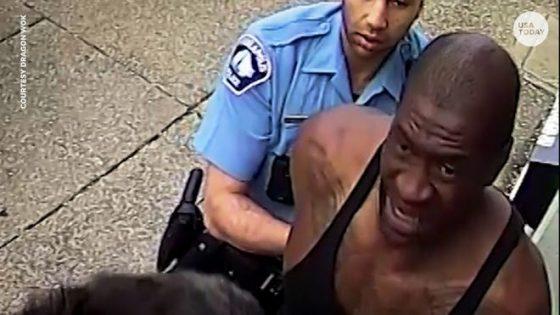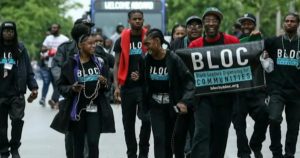STATE OF MINNESOTA
IN COURT OF APPEALS
C2-01-399
CUP Foods, Inc., a Minnesota Corporation, and its President Samir Hamaden Abumayyaleh,
Relators,
vs.
City of Minneapolis,
Respondent.
Affirmed in part, reversed in part, and remanded
G. Barry Anderson, Judge
City of Minneapolis
Docket No. 9-2110-12612-3
Ronald I. Meshbesher, Jonathan M. Peck, Meshbesher & Spence, Ltd., 1616 Park Avenue, Minneapolis, MN 55404 (for relators)
Jay M. Heffern, Minneapolis City Attorney, Scott Reeves, Assistant Minneapolis City Attorney, 300 Metropolitan Centre, 333 South Seventh Street, Minneapolis, MN 55402 (for respondent)
Considered and decided by G. Barry Anderson, Presiding Judge, R.A. Randall, Judge, and Robert H. Schumacher, Judge.
S Y L L A B U S
If an agency adopts the findings and conclusions of an administrative law judge, but rejects or significantly deviates from the recommendations of that judge and does not make findings explaining the deviation, the decision is arbitrary and capricious, and the case should be remanded for the agency to make findings explaining its decision to deviate.
O P I N I O N
G. BARRY ANDERSON, Judge
Respondent city stayed revocation of relator’s business licenses subject to store closure for six months and compliance thereafter with several conditions. Relator argues that respondent’s decision is not supported by substantial evidence and that the sanction was arbitrary and capricious. Relator also argues that the administrative law judge (ALJ) abused her discretion by denying his motion to strike testimony concerning controlled drug buys. We conclude that there is substantial evidence to support respondent city’s finding of good cause for adverse license action against relator. In addition, because relator did not make a timely motion to strike, we conclude that the ALJ acted within her discretion by denying the motion. But because respondent deviated from the ALJ’s recommendations when imposing its sanction, without making findings explaining the reasons for doing so, we reverse and remand.
In 1989, relator Samir Abumayyaleh opened a convenience store at the northeast corner of 38th Street and Chicago Avenue South in Minneapolis. The store sold groceries and the usual convenience items. Eventually, relator added numerous goods and services to the store, including a delicatessen, cellular phone and pager sales, tobacco products, and off-sale 3.2 beer.
Respondent City of Minneapolis issued CUP Foods (Chicago Unbeatable Prices) four licenses: (1) grocery store; (2) food manufacturer; (3) tobacco dealer; and (4) off-sale 3.2 beer vendor. Respondent first issued the licenses in 1989 and each is subject to annual renewal. Relator’s family, including his father and two younger brothers, work at the store, but relator also employs other workers. Relator’s younger brother Nabil, known as “Billy,” one of the store employees, has a prior felony conviction for auto theft.
CUP Foods is located in a high-crime area of Minneapolis and, not surprisingly, experienced problems with loitering and drug activity in and around the store. In 1991, relator complained to respondent about the loitering problem, and at a city crime specialist’s recommendation, relator placed two yellow “no trespassing” signs outside his store. Respondent conditioned relator’s licenses on reduced hours of operation. On several occasions, however, the store remained open after the designated closing time.
In 1993, after receiving additional complaints about loitering and drug activity near CUP Foods, respondent scheduled a committee meeting to consider adverse license action. As a result of the meeting, relator agreed to remove public pay phones, hire off-duty police officers for security, reduce hours of operation, hire older employees for evening shifts, report drug activity to police, and remove signs blocking store windows. Relator understood that failure to comply with the agreed-on conditions could result in revocation, suspension, or non-renewal of his licenses. Relator complied with the conditions, including the employment of off-duty police officers as security guards. But approximately one-year later, relator discontinued their employment because of the cost and because “things got a lot better at the intersection.”
As time went on, however, the crime problem at 38th and Chicago became worse. In 1996, neighborhood residents formed a task force to improve safety and reduce drug-dealing activity in the neighborhood. In 1998, the number of complaints concerning CUP Foods prompted police community crime specialists to open a file on the store. Crime-prevention specialists visited CUP Foods and relator signed a Minneapolis “no trespassing” affidavit and received two new “no trespassing” signs. The specialists advised relator to call 911 to report trouble, and he and his employees did so.
On July 13, 1998, a shooting took place near CUP Foods. Shortly thereafter, relator attended a task-force meeting and asked for a greater police presence at the intersection. A few months later, two more shootings took place near CUP Foods.
Beginning in October 1998, police conducted surveillance of CUP Foods. Police observed loitering and hand-to-hand exchanges outside the store and in the store entryway. Using confidential informants, police made several “controlled buys” of either crack cocaine or apparent crack cocaine inside CUP Foods.
Based on the results of the controlled buys, police obtained a search warrant for CUP Foods and executed that warrant on November 18, 1998. Police recovered: stolen cell phones; a bullet-proof vest; live ammunition; a stolen bicycle; ephedrine, an ingredient in methamphetamine; glass tubing; baggies of what appeared to be crack cocaine (but later proved to lack cocaine base); postal scales; and three firearms. Police also observed bullet holes in a door. The state charged Nabil Abumayyaleh with unlawful possession of a firearm, but later dismissed that charge. Police did not link any of the stolen items to relator, and did not charge him with any crime.
Police continued to make controlled buys in CUP Foods during 1999. On one occasion, the participants completed a transaction in plain view of Nabil Abumayyaleh as he worked as a cashier. On November 9, 1999, a Minneapolis police officer recovered crack cocaine from a CUP Foods shelf during the course of answering a call reporting an armed man in the area.
In November 1999, the Hennepin County Attorney’s Office commenced a nuisance-abatement proceeding against CUP Foods. That proceeding was stayed pending the city’s resolution of appellant’s licensing issues because, on November 19, 1999, respondent filed a notice of hearing concerning all CUP Foods licenses. Respondent filed amended notices on February 25, 2000, and again on March 27, 2000.
An ALJ conducted evidentiary hearings on March 28, 30, and 31, and on May 5 and 15, 2000. Respondent presented testimony from police and neighbors, and argued for revocation of relator’s licenses. Relator presented favorable testimony from neighbors and customers, testified to his own compliance with recommendations, and explained that he, too, sought to end the criminal activity near the intersection.


















